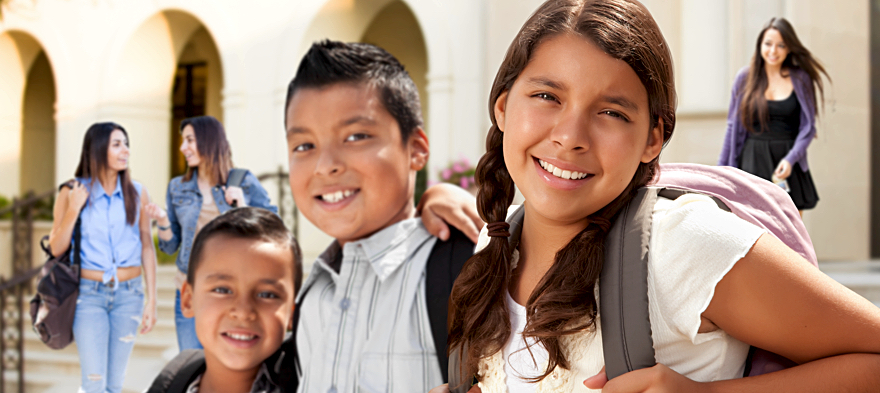
Oct 14, 2021 12:00:00 AM
During my freshman-year orientation in college, in the fall of 1997, several people asked me if I knew Selena Quintanilla-Pérez, the queen of Tejano music. It struck me as a strange question. The answer was “no.” Other students asked me for help with Spanish homework, if I was “an affirmative action student,” and if I was related to Elián González. I was complimented for my lack of accent and for being “smart for a Hispanic.” I didn’t realize it at the time, but these were microaggressions and these interactions contributed to a feeling that I just didn’t belong there. That freshman year was my first living outside New Mexico, which has a rich Hispanic culture. Throughout my time in undergrad in D.C., later in graduate school in Indiana, and as an adult, I experienced many more microaggressions and feelings of not belonging.
I’m glad to say I also had positive interactions during my freshman year that did make me feel connected: when I interned for Congressman Xavier Becerra, and he made ojitos at his young daughters; when I heard live mariachis at a Hispanic Heritage Month celebration; and later, in every interaction with a graduate school professor who, like me, was a Latina from the Southwest. Such relationships are critical, especially for young people. Research shows that every child must have at least one stable and committed relationship with a supportive adult to do well in life.
As we collectively commemorate Hispanic Heritage Month, [pullquote]I hope we recognize the work we need to be doing in our schools is not just about tacos, salsa music and César Chávez, but also about making sure that each and every Latino child feel like they genuinely belong there.[/pullquote] They must feel safe, supported, seen and challenged. We must place a special emphasis on academic belonging, a sense of connection to learning and an identity as a scholar.
Belonging matters. And we have work to do. The percentage of Hispanic students who report feeling “awkward” in school at least half the time rose from 26% to 32% from 2017 to 2019 and is higher than any other racial group, besides American Indian/Alaska Native at 38%. Less than half of Hispanic students report feeling happy in school, a number that has also decreased since 2017.
A University of Chicago study found students with a strong sense of academic belonging interpret learning challenges as a normal part of their experience, rather than feeling out of place. Students who do not feel like they belong, withdraw and are likely to put forth less effort to learn.
[pullquote position="right"]Hispanic students report some of the lowest rates of academic belonging[/pullquote], measured, for example, by the extent to which they think of themselves as good at math or wanting to be seen as good at math.
Belonging takes intentionality and resources. It requires a hard look at current practices and requires us to reprioritize time, people and money toward fostering belonging.
Here’s how:
Making sure students feel like they belong may seem obvious. And many schools are doing great work to prioritize belonging. But there’s also a general sense that schools should be focusing mainly on academics, especially as we recover from pandemic-related school closures and lost learning time. But that’s not enough; [pullquote]kids will not be able to learn if they don’t feel safe, supported and connected.[/pullquote]
This shouldn’t just be something we care about only during Hispanic Heritage Month, but a focus on belonging needs to become the focus of schools. Students, families and educators are under tremendous stress from increasing COVID infections in young people, raging debates about masks and vaccines, and ongoing economic insecurity. For many, this is a breaking point. We must re-center schools around belonging because it is the way we’ll collectively make it through this, not just for Hispanic Heritage Month, or Black History Month, or back-to-school but for the long haul. Este es el momento, únete a mi.
Danielle M. Gonzales is managing director with the Education & Society Program at the Aspen Institute, which recently released Pursuing Social and Emotional Development Through a Racial Equity Lens: A Call to Action. In this role, she leads efforts to convene senior education leaders at all levels of education to tackle the most vexing issues in education, to develop and foster partnerships with a diverse range of education leaders, and to write and develop publications and resources associated with professional learning; social, emotional, and academic development; and educational equity. Prior to this, Danielle was a senior program officer at the Bill & Melinda Gates Foundation working to advance the Foundation’s K-12 strategy in key states and developing the Foundation’s strategy for engaging faith communities in education reform. Danielle has over 15 years of experience in education philanthropy, policy and advocacy in both pre-k and K-12 education and at both the state and national level. She began her career teaching fourth grade in Brownsville, TX.
Few issues in education spark more tension and debate than standardized testing. Are they a tool for equity or a burden on students? A necessary check on school systems or a flawed measure of...
Charter schools are public schools with a purpose. Operating independently from traditional school districts, they're tuition-free, open to all students, and publicly funded—but with more flexibility...
Despite the benefits of a diverse teaching force, prospective teachers of color fall out of our leaky preparation pipeline at every stage: preparation, hiring, induction, and retention. Here’s what...
Ed Post is the flagship website platform of brightbeam, a 501(c3) network of education activists and influencers demanding a better education and a brighter future for every child.
© 2020-2025 brightbeam. All rights reserved.
Leave a Comment